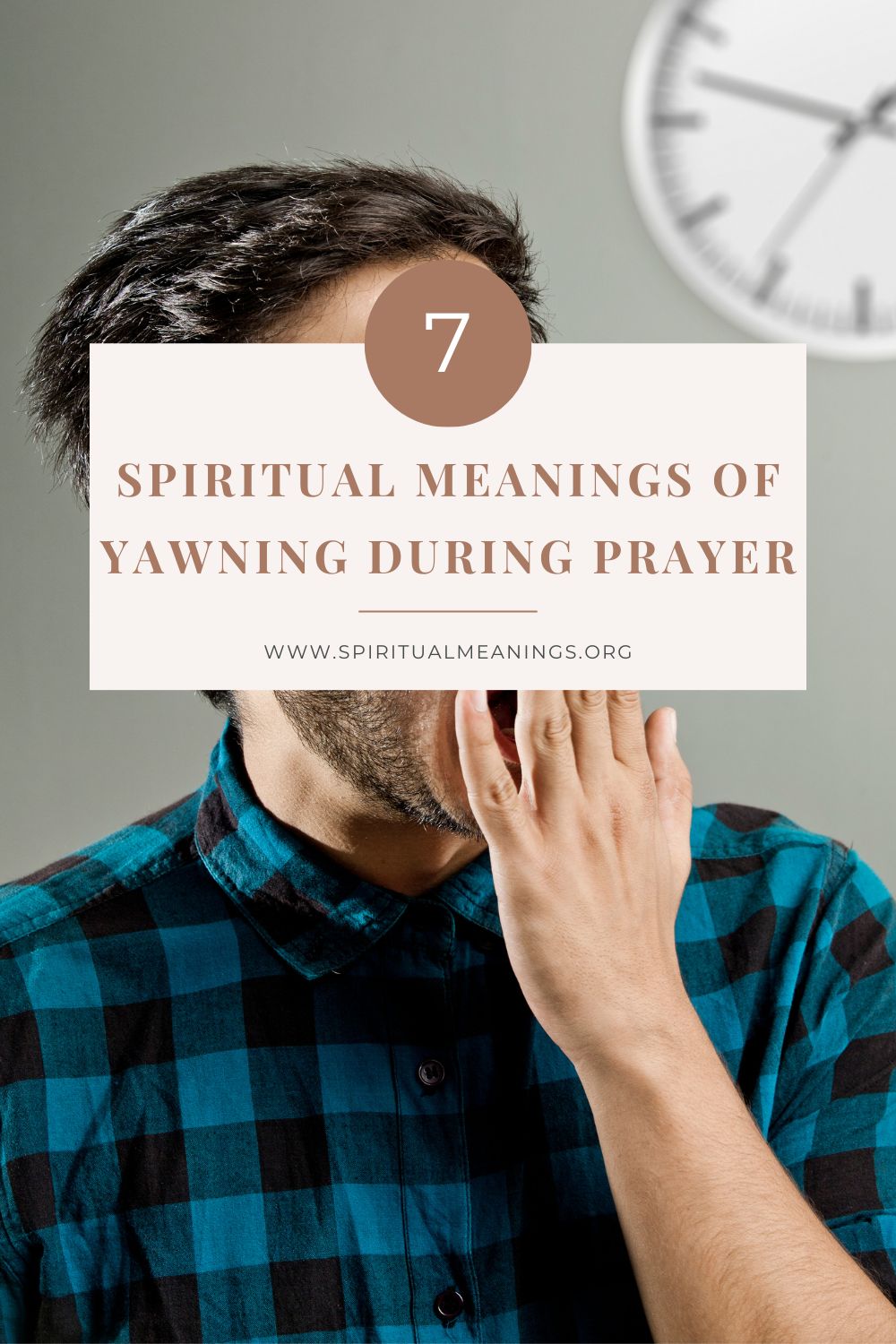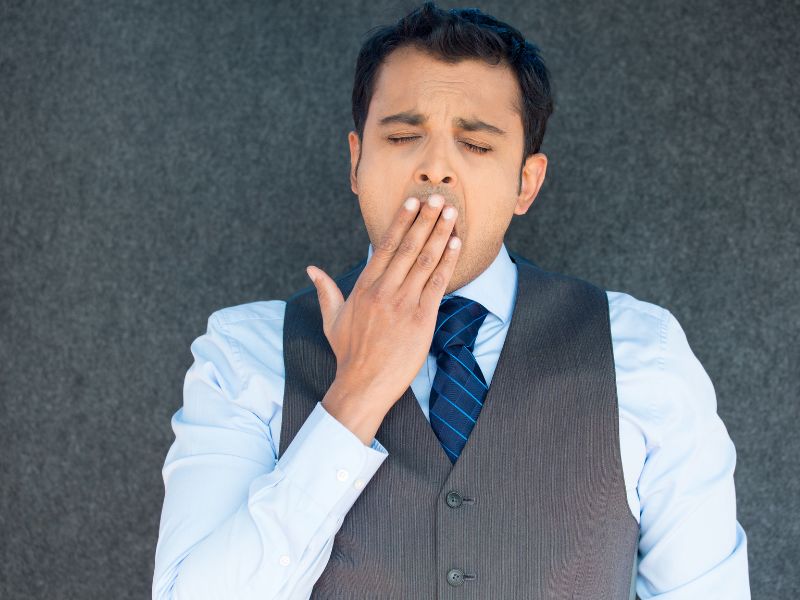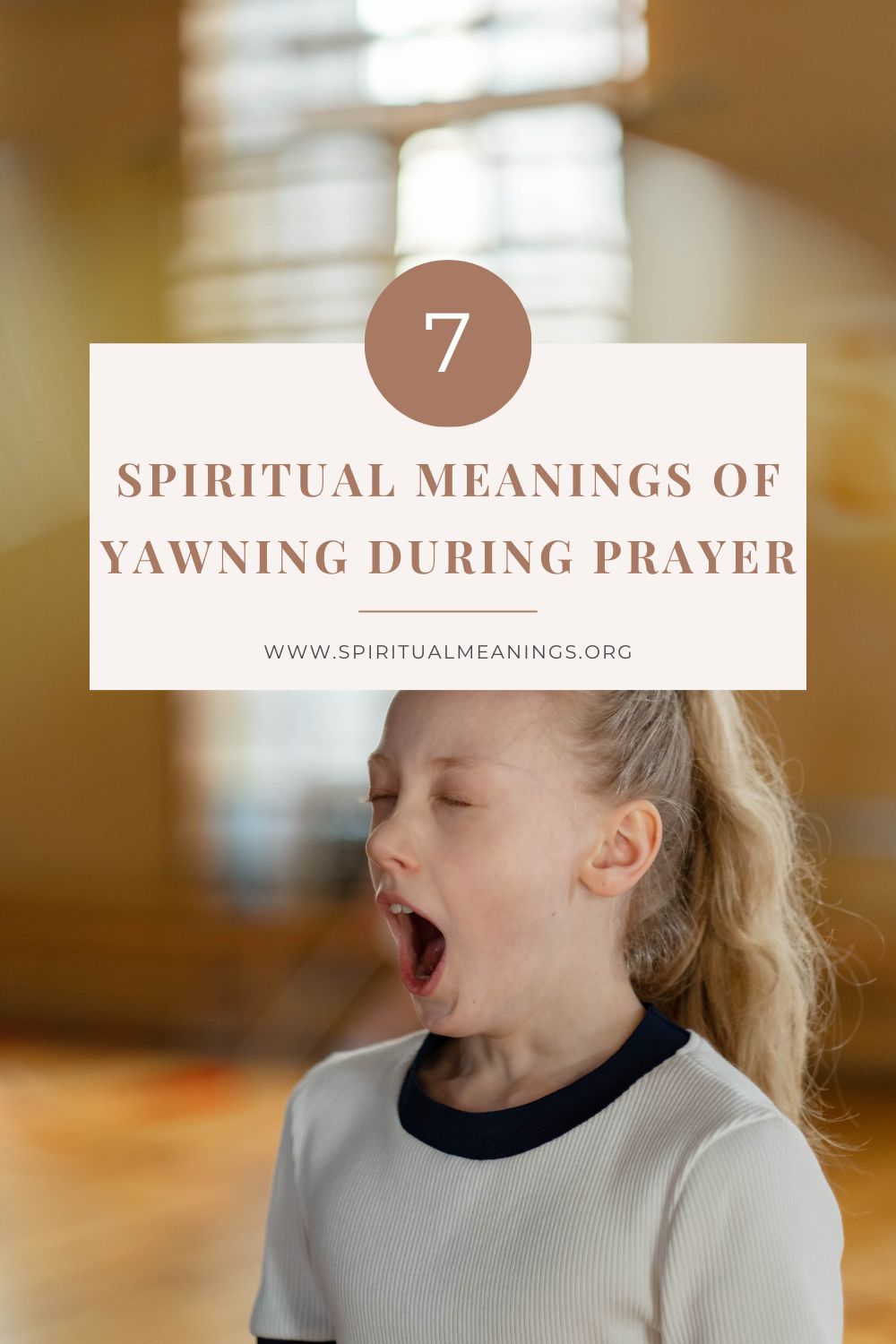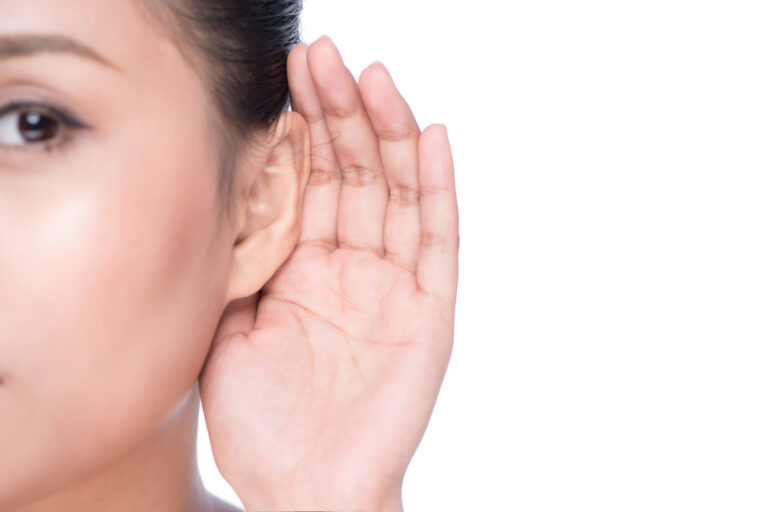Yawning is a physiological activity that is common in all vertebrates and includes inhaling and exhaling air, as well as stretching muscles. A yawn is part of our reflex system, which is mainly triggered unwillingly due to external stimuli. There are several explanations as to why we yawn, with the most popular one being the low oxygen levels in our lungs.
Yawning begins in the womb, but it’s primarily seen in adults and less so in children when it is time for sleep or during boring activities. However, yawning can often occur during more important activities such as prayer or meditation. So, what is the spiritual meaning of yawning during prayer?
In this article, we’ll examine the hidden spiritual meaning of yawning during prayer, what it implies and whether you should be ashamed of it or not.
Keep on reading to learn more about the symbolic meanings of yawning!
Spiritual Meanings Of Yawning During Prayer
Prayer is a vital ritual in most religions and spiritual activities. It acts as a form of communication with higher entities, as well as a time of relaxation, self-reflection, and spiritual development. People can pray on their own or in a group with others.
Since prayer is a quiet and esoteric act, it is often considered inappropriate to disturb someone while praying. Therefore, if you yawn during prayer, it may be viewed as you being bored, not paying attention to what is said, or even being rude to others.
However, some people believe that yawning during prayer is not an act of rudeness but rather a natural part of being tired or sleepy. Also, yawning can occur when someone is very hungry or cold. Not to mention that yawning is also considered a contagious habit that is used for social communication.
Yawning during prayer can have many symbolic meanings and should not be instantly regarded as rudeness. Here are some common physical and spiritual meanings of yawning during prayer:
1. Fatigue
Yawning is the most common physiological response to fatigue. People usually yawn just before they go to sleep. So, when a person feels tired, either due to a tough day or due to not sleeping well, it’s normal for the body to show fatigue and cause yawning.
Another thing to consider regarding fatigue is the time of day that the prayer happens. If a person prays during the early morning hours right after waking up, they’re more likely to yawn while praying. Similarly, if a person prefers to pray late at night just before going to sleep, it is possible that they are tired and may yawn extensively.
2. Stress
Studies have shown that yawning is also a typical physiological response to situations that cause a lot of stress. Several types of people, like soldiers or athletes, have experienced extensive yawning before important and stressful events like an upcoming battle or race.
When a yawn happens, the person draws in a lot of air and exhales it, which clears the lungs and helps relieve tension.
If a person is yawning during prayer, they may be facing many overwhelming emotions. These emotions can weigh you down, especially during praying when you are in a very vulnerable state.
Sometimes it can actually be more beneficial to yawn a few times rather than holding it in and increasing tension. Yawning allows you to release the stress, worry, and negative energy that flows through you. This will, in turn, allow you to focus more on your prayer and connect with higher beings more deeply.
3. Boredom
As we mentioned before, yawning is mostly associated with boredom. This is also backed by science, as when we feel bored, we often breathe shallowly, lowering the brain’s oxygenation. Thus, our body induces yawning as a reflexive response in order to take a deep breath and intake more oxygen.
Yawning during boredom is also a type of social communication. When several people partake in a specific activity, and one of them is bored by it, they often yawn instinctively to inform others of their boredom. However, this is often considered impolite in certain activities, like group praying or meditating.
The act of praying should not be considered an obligatory duty. Instead, it is an opportunity for a person to relax, let go of negative thoughts and emotions, and connect with their God or higher entity. Still, some people pray out of obligation and do not appreciate the meaning of the words they recite. This leads to boredom, which causes them to yawn.
4. Thermoregulation
Another explanation from modern neuroscience behind yawning is the thermoregulation of the brain. When the temperature in our skull rises, our body uses the yawning mechanism of yawning to help remove overheated blood from our skull.
There could be several reasons that would cause an increased skull temperature in an individual. If a yawner suffers from high blood pressure, a stressful situation might cause increased blood flow to the vessels, increasing the temperature.
Environmental conditions can also play a significant part in increased temperature. A closed environment like a temple full of people can be very hot and cause the people inside to yawn to lower their temperature.
5. Spiritual Meaning Of Yawning During Prayer In Christianity
Yawning during prayer can have different spiritual meanings and numerous superstitions for different religions. In Christianity, yawning is regarded as a normal activity and is not considered a sin. In fact, for Christians, yawning during prayer symbolizes humility and devotion to God.
Whenever someone is reading the Holy Scriptures with passion, it can cause them to yawn. It takes a lot of physical and mental effort to read out a lengthy prayer properly. Your brain needs to be focused solely on this task, which requires higher oxygen levels. Thus, yawning commonly allows for a deep breath and better oxygen circulation.
Another reason for yawning during prayer in Christianity is the environment where the praying occurs. During the Divine Liturgy, the doors and windows of the church are kept closed to avoid the candles blowing out due to the wind.
This leads to a hot and stuffy atmosphere, making breathing difficult, especially for an older person. That is why some individuals sometimes yawn to take deep breaths. Additionally, the time of day the prayer occurs needs to be considered. During the early mornings, people will be more sleepy, especially if they were not able to sleep the previous night properly. Thus, it’s easy to fall into the habit of yawning. Finally, during prayer, a person is in their most relaxed state of mind. They have blocked out all their worries and have opened themselves to connect with God.
However, when you let your guard down, evil spirits often try to tempt you. That is why you will see some people yawning or even show other physical responses like sneezing, itching, and scabies.
6. Spiritual Meaning Of Yawning During Prayer In Islam
In Arab countries, there are several cultural beliefs about yawning while praying. The most common one is that it’s a test by Allah. In fact, yawning during prayer is the way Satan is attempting to enter your body. When you sneeze, your body drives off Satan.
According to The Prophet, Satan takes great pleasure in trying to divert the faithful’s attention and humiliate them. He achieves this by invading their thoughts and disturbing their focus with temptations such as yawning. He also finds the facial expressions that men make while yawning to be particularly amusing
A faithful Muslim must avoid the temptations of Satan and maintain his diligence. They must hold their yawn inside for as long as possible. If it becomes unbearable, they should immediately cover their mouths with their hands or a piece of clothing. This gesture is made in fear of Satan entering the body.
7. Spiritual Meaning Of Yawning During Prayer In Hinduism
Similar to Islam, Hinduists believe that there are certain evil spirits known as “bhuts” that wish to enter a person’s body through the mouth or throat. Therefore, when a person in India yawns during prayer, it often means that bhuts are trying to invade their body.
However, it can also mean that a part of the soul is attempting to leave the body. Thus, everyone needs to be careful, as it can be challenging to recapture a lost piece of one’s soul.
A recommended practice that most people follow to avoid this is to put a hand in front of their mouth to stop yawning. They also snap their fingers to exorcize away the spirits or yell “Narayan” (which means “Good God”) repeatedly.
Conclusion
All in all, yawning is a natural physiological response that our body uses when in distress. This means that it can occur reflexively at any time, particularly when we feel more relaxed and have let our guard down.
There are many reasons why someone would yawn during prayer. Most of them are physiological, such as anxiety, discomfort, fatigue, or boredom. But, there are also some spiritual meanings behind this, such as evil entities trying to enter your body.
In any case, yawning while praying is mainly considered harmless and normal. Not to mention that it is sometimes a common practice to show that you have achieved a deep connection with a higher entity and you are preparing to receive spiritual guidance.











